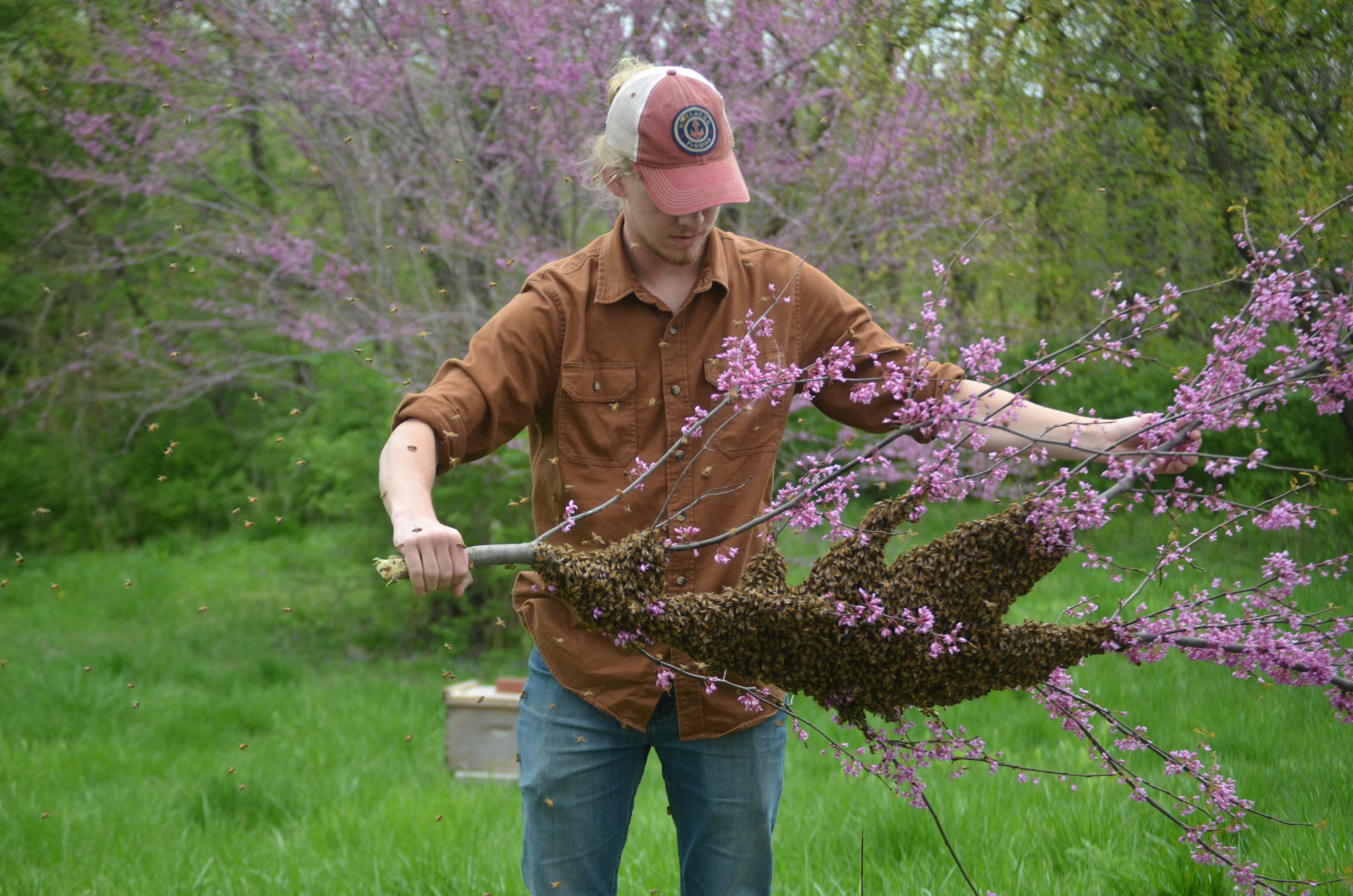While pollinator populations have been in decline around the world, Blackburn College has been demonstrating its commitment to enhancing the habitat, spreading awareness, and ensuring these species have what is needed to thrive. As part of these efforts, Blackburn has received 2022 Bee Campus USA recognition, an initiative from the Xerces Society for Invertebrate Conservation dedicated to sustaining pollinators. With a rich history of leading in sustainability and pollinators, Blackburn is currently the only college or university in the St. Louis region and southern Illinois to receive this distinction. The College has received the Bee Campus USA certification each year since 2019.
Dade Bradley, a junior Environmental Biology major, has played a significant role within Blackburn’s Bee Program throughout his time on campus. He believes this designation can be impactful for Blackburn, the program, and the greater Carlinville community. “Being a Bee Campus within a Bee City demonstrates both Blackburn’s and Carlinville’s commitment to generating a more pollinator-friendly environment. Pollinator habitat has been increasing on-campus with the addition of plantings under the solar array, less mowing by our Ground’s crew, as well as the planting of more flowering trees throughout campus by students. As Blackburn aims to be a more environmentally conscious campus, this also calls for more pollinator and wildlife habitat restoration.,” he elaborated.
While Blackburn’s commitment to pollinators dates back to the late 1800s, the current Blackburn Bee Program launched in 2016 when the College was forced by an insurance provider to remove a natural beehive from a tree near the Lumpkin Learning Commons and Success Center. Instead of exterminating it, Dr. James Bray, Biology Department Chair, connected with Arvin Pierce, a local bee expert, to safely transfer the hive into a bee box and the first official hive on campus. As of today, the program currently has 6 active hives on campus, maintains 7 more at Solomon Creek Farm, a private nature preserve in Illinois, and two period-correct hives at Lincoln’s Home Natural Historic Site in Springfield. Blackburn and the Bee Program also conduct collect and analyze data, with plans in the future to include radio-tracking and study issues related to pesticides and herbicides.
The Bee Program also allows students to learn about beekeeping through Blackburn’s unique student-led work program. Students are responsible for cleaning and maintenance, capturing swarms, splitting hives, and harvesting honey. Throughout the year, they relocate feral bees and in the fall, insulate the hives to prepare for the upcoming winter. Bradley has been involved in the Bee Program since his freshman year and now is a certified beekeeper who manages his own hives because of the program’s influence.
